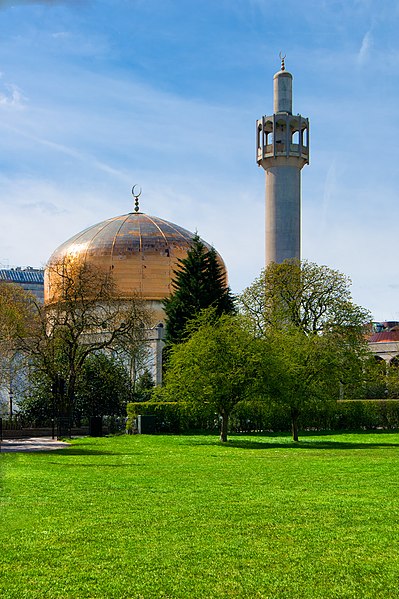
The Conference of European and British Muslim Leaders has launched a new organisation in London aimed at promoting bridge-building and peaceful coexistence globally. The event was held
under the auspices of the Muslim World League, and was attended by its secretary-general, the former Saudi justice minister Dr Mohammed bin Abdul Karim al-Issa, who chaired the inaugural gathering. Dr al-Issa’s attendance came at the end of a busy visit to London where he met with the King, Cardinal Vincent Nichols, Archbishop Justin Welby, parliamentarians, and representatives from the Foreign Office and the Ministry of Defence.
The launch event saw 300 scholars and religious leaders from the UK and countries across Europe gather at the Roundhouse in Camden. Dr al-Issa addressed the attendees in Arabic and praised the Charter of Makkah, which he described as the most important Islamic document of the modern era. The charter was produced at a meeting of senior scholars and leaders from 139 countries and all sects within Islam at a meeting in Makkah (also spelt Mecca), Islam’s holiest city, in 2019 under the patronage of King Salman bin Abdul Aziz Al Saud.
The charter is being promoted globally by the Muslim World League and ratified in conferences of Muslim leaders. It advocates coexistence within and between religions while denouncing terrorism and hatred. Dr al-Issa said the charter was about coexistence, understanding, and cooperation. Division and rivalry had “offended Islam” from the beginning and attempts to mobilise Muslim youth with “extremely dangerous ideas of extremism, hatred, and violence” had led to disasters based on wrong ideas. There was a duty of “optimal coexistence” with countrymen, regardless of diversity, in order to reconcile hearts and strengthen the cohesion of society.
The Muslim World League was founded in Saudi Arabia in 1962 and more recently has become a vehicle for promoting Islamic values that condemn terrorism and include interfaith work. The league was the driving force of the R20, the gathering of world religious leaders that met in Indonesia shadowing the G20 last autumn, when Dr al-Issa said it was high time to acknowledge that religion and faith must be part of the solution to global political crises.
The interfaith approach is a key part of the charter, which says differences among people are part of God’s will and God is the origin of all religious belief. At the inaugural conference gala dinner, European Muslim leaders lent their support to the charter and the new organisation. Sheikh Yahya Pallavicini from Italy spoke of the challenge in Europe of religious illiteracy, an ignorance of Islam, and a loss of the knowledge of the meaning of sacredness.
Zara Mohammed, secretary-general of the Muslim Council of Britain, said there was a need to build the Muslim community in this country, with 50 per cent of Muslims being under 25, and entrenched cycles of deprivation. The engagement of Muslims in society required confidence despite the threat of Islamophobia and hate crime, especially against women. Chems-Eddine Hafiz, the Rector of the Grand Mosque of Paris, told the gathering he would defend Muslims and Islam against a discourse of hate. It was a responsibility to teach people that Islam was a religion of peace, kind acts, and justice, and negative interpretations must be detached, ensuring no blind following of fundamentalism. Internal faith and external presentation must be the best examples of humanity.
Sir Iqbal Sacranie, the former secretary-general of the Muslim Council of Britain, announced the creation of the Europe-wide new organisation, which will be based in London. Photo by Asim Saleem (Asim18), Wikimedia commons.




































